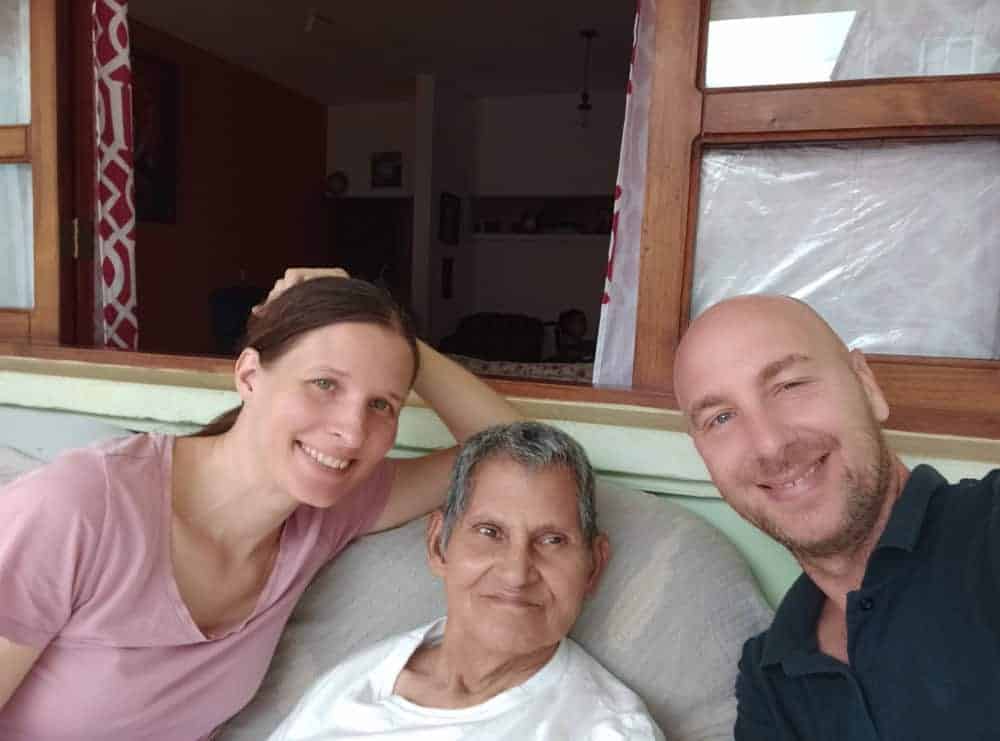We were leaving Riosucio with mixed feelings. There was no other way to go.
On the one hand, we were delighted to be able to share a snippet of life with such beautiful people. On the other hand, we felt so unfair that we were going back to Medellín just because we could afford to leave. While most Chocoans are so poor they will probably never be able to afford to get out – they will remain at war and in constant danger.
But something is certain: even though one might think that these people have nothing to give, nevertheless, the richer ones are leaving richer, perhaps even more than ever.
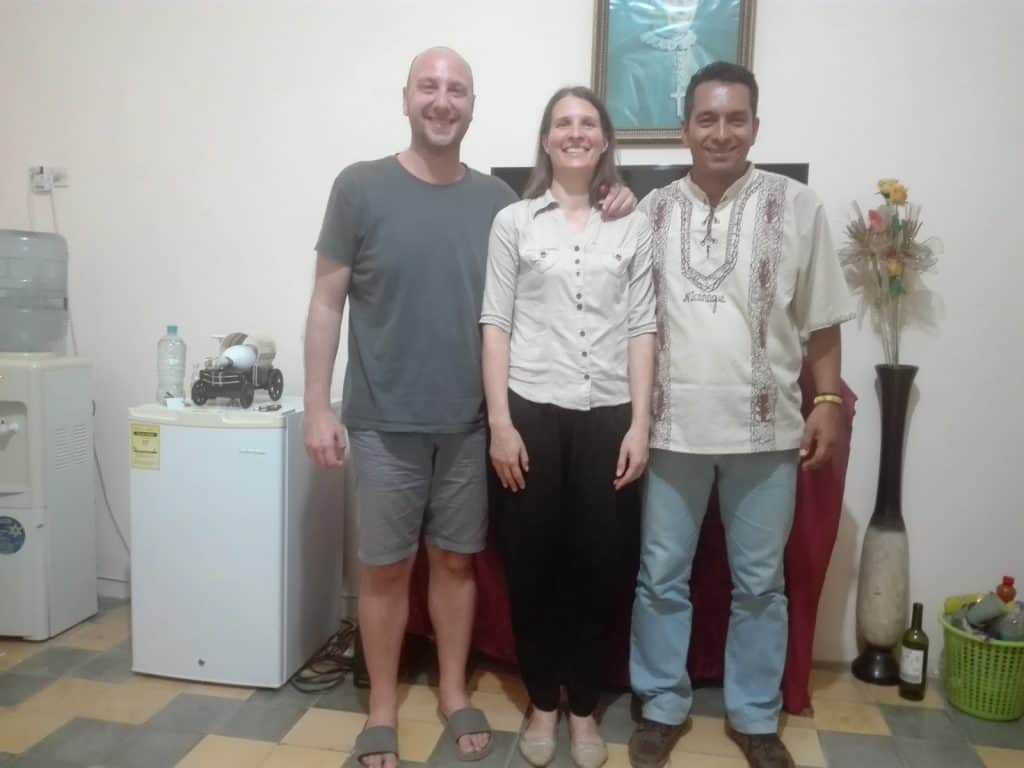
As it has been shown so many times before, we are closest to God when we are forgotten, tried and prosecuted together with those at their most difficult moments. Perhaps only our experience of Ukraine and Bangladesh can be compared to our experience in Riosucio.
Thus, upon leaving the mission, we made a fair balance of everything that God taught us in the village by the ‘Dirty River’. There were many life lessons but the most important are these four life lessons that can also be lessons for anyone, even though they never visited Riosucio.
1. Peace Shouldn’t Be Taken for Granted
The oldest of you know this because you have experienced World War II. Somewhat younger readers remember more recent and isolated conflicts. To the rest, peace is something normal and self-evident.
It is precisely the people of Riosucio who have lived in the war for over twenty years that can teach us that peace shouldn’t be taken for granted. It must be fought for as Anita taught us.
She has experienced war in the most cruel way on her skin. She has watched death in the eyes, and people have been killed in front of her – but she still says that there is much more to the world and that there is a need to fight to overcome bad.
Where did the peace come from?
Anita’s story is just one of thousands and thousands. How is it possible for these people to maintain peace in their hearts despite the wild war all around them?
It’s possible. Maybe because these people cleanse their hearts every day. They pray. They believe in God, in His Love, but also in His righteousness. They do not judge their surroundings because they leave their fate to God.
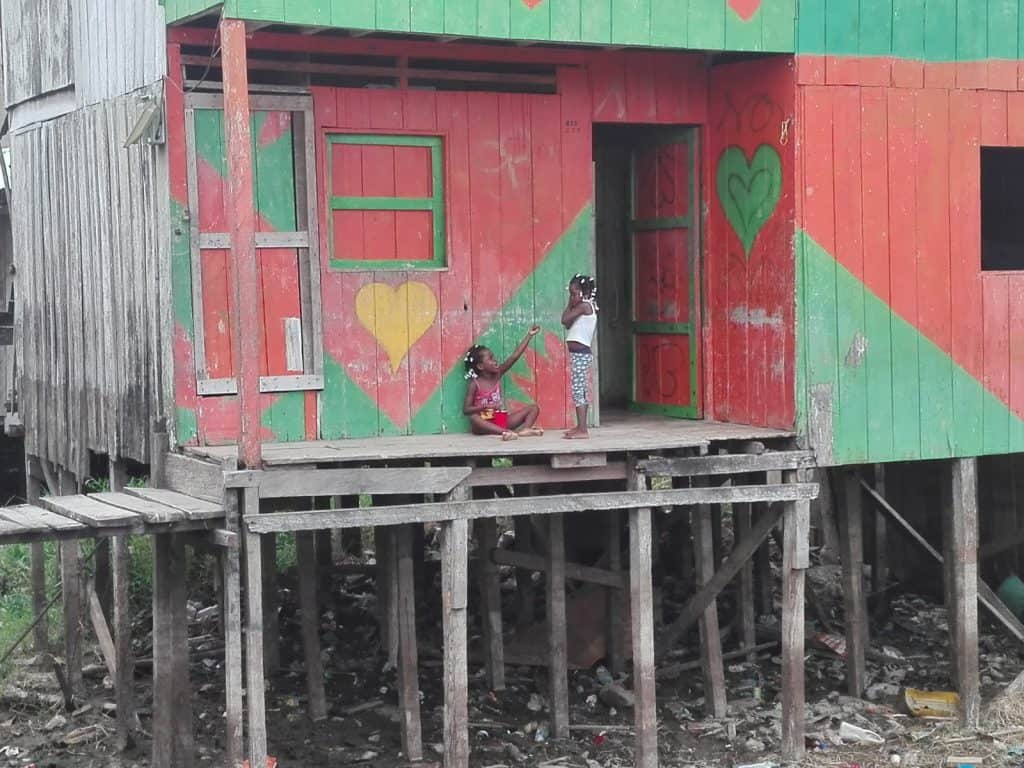
The world sometimes presents an event that shakes us – illness, loss, maybe even war. But it can only be driven by the realization that we are heavily dependent on the God who created us. Only when we admit that, despite all the trials of life, can we experience peace.
Isn’t that life lessons important for us too?
We do not live in war and scarcity – at least, most do not. So, we quickly forget where we come from and where we are going. We don’t think we need to turn to the Creator, because we already have everything. But, in reality, we live in the mist and forget that our earthly life is like a flower: today it is, tomorrow it is gone.
The world sometimes presents events that shake us – illness, loss, maybe even war. But it can only be endured by the realization that we are heavily dependent on the God who created us. Only when we admit it, despite all the trials of life, can we experience peace.
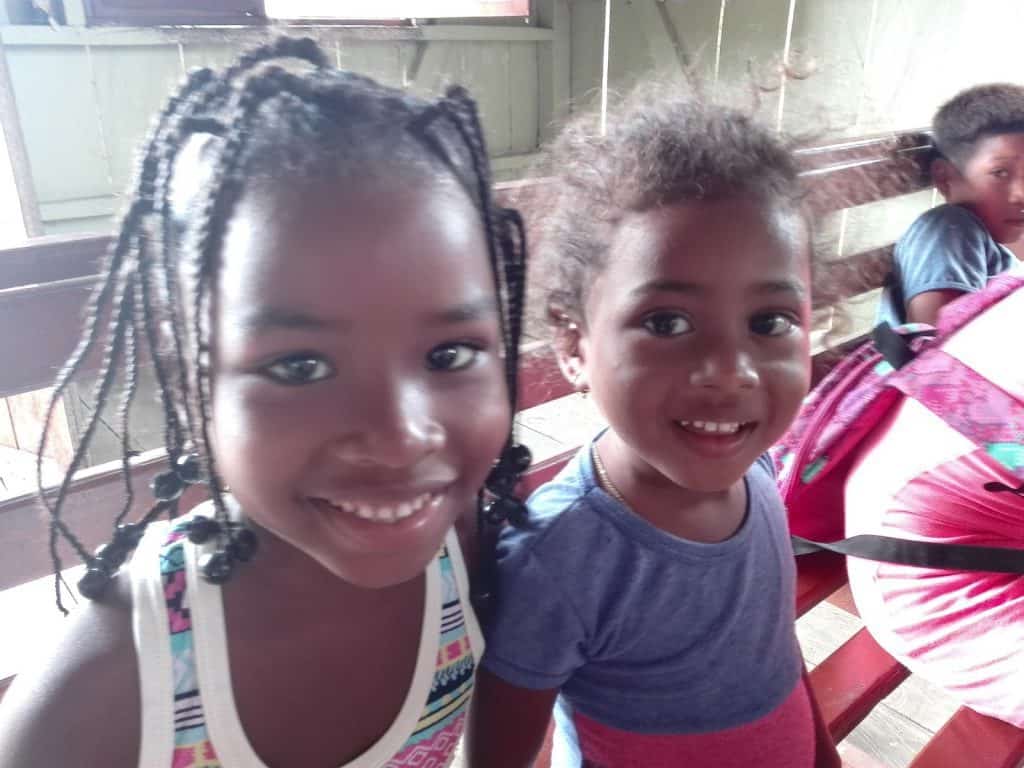
The moment we realize that He is carrying us in his hands do we gain confidence and lose our fear.
2. Family is the most important value of society
Not only the family in the narrow sense, but the community as such. Living together, sharing things, helping others who need help more than ourselves.
No man can live on his own, even though in Western society we want to run away from this truth. We are dependent on each other more than we think or want to admit.
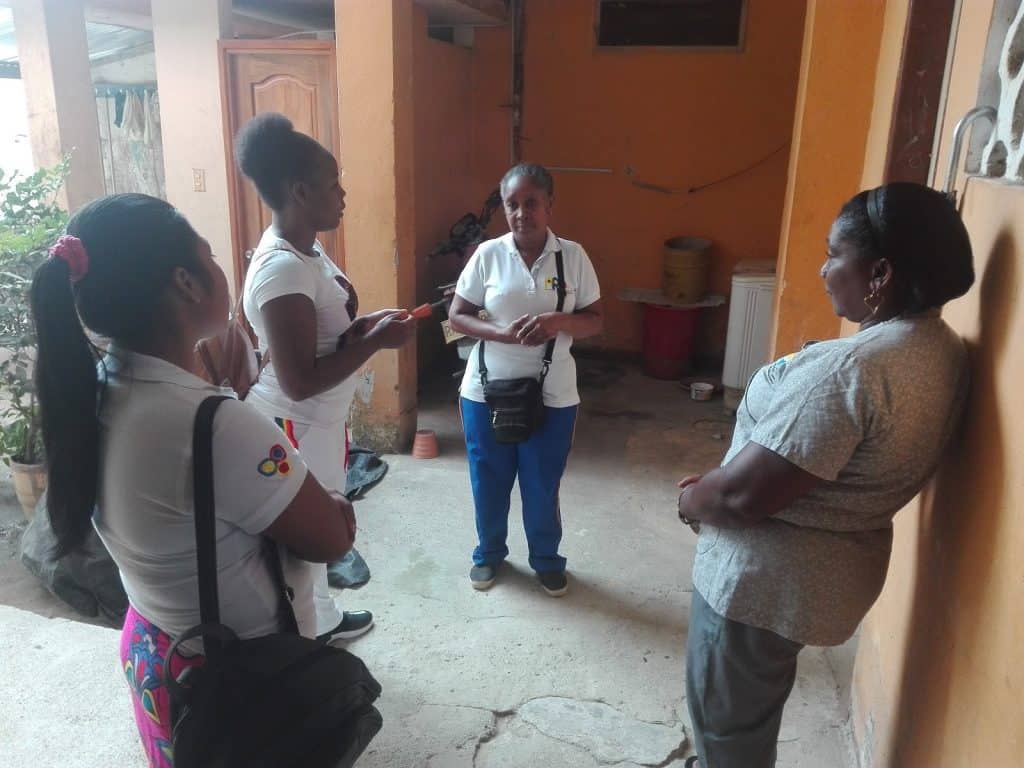
The people of Riosucio can set a good example for us. In this poor village you will not find a man who would refuse to help another just because he is ‘saving for old age’. These old years can come, or they may not, while they cannot live in peace if they see someone who cannot afford a single meal a day.
There is no place for individualism
We listened to stories from people who were going without food for themselves to feed the children of their neighbors, friends or relatives.
Individualism has no place in a society like Riosucio. Everyone has experienced need, so they know full well what it means to live day-to-day, from one meal to the next.
Solidarity. That’s what we can learn from them. Awareness that we are all connected.

We will not take any things with us when we say goodbye to this life. And that could happen tomorrow.
3. Sometimes just being present is enough
If ever, then at Riosucio we learned that we can be useful even if we have no direct activity to engage with people.
We got there in a special time when a missionary team changed after three years. All activities stopped until the new missionaries had organized themselves and started to work for the previous ones. Of the ‘old’ team, only Alvaro remained.
In addition, the situation in Riosucio was especially critical at the time, and visiting the community on the other side of the Atrato was too dangerous due to the military and the associated insecurity. Father Alvaro did not want to take any chances.
And yet. When these people thank you just for living with them, when they tell you how much it means to them to be present ‘from the outside’, especially from the West, you lose the unpleasant sense of uselessness.
However, Operando also had a great opportunity to help in a very practical way.
One day, Anita and I visited a sixteen-year-old boy who had been hooked to a stroller for a year.
Shooted and paralyzed
His story is just as shocking as any other. He once went to his brother to help him in a field near a village. Along the way, he encountered an armed soldier who was convinced he cooperates with his opponents. He shot him, but he survived. He was so badly wounded that he could no longer stand on his feet.
Today, after a year, he lives in a wooden shed with his family. Because they do not have the money to transport him to the nearest city of Cartagena, he still had not visited a specialist doctor to examine him and make the right diagnosis. For the last year, he has lived in uncertainty, wondering if he will ever be able to walk again or whether he will remain lame forever.
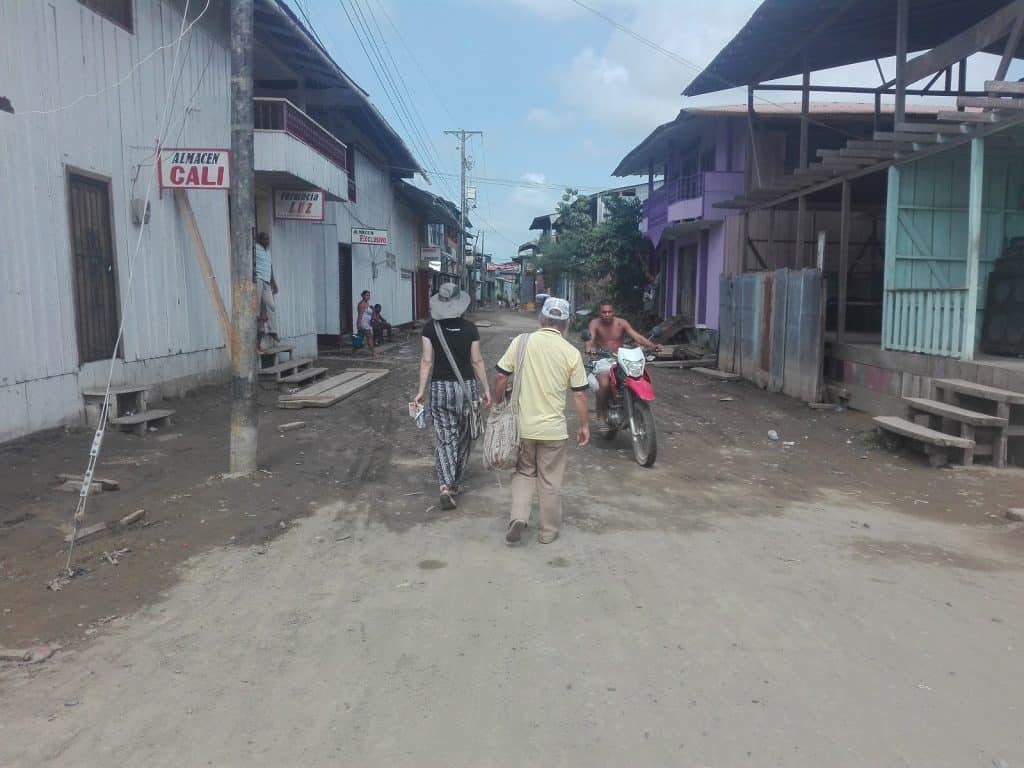
It is hard to imagine how a young man, once full of life and ambition, was suddenly paralyzed, without even having the time to accept new circumstances, because he maintains the hope that he will be able to walk again.
Silva and I decided to pay a portion of the funds you provided for missionaries in Riosucio to transport him to Cartagena. The travel expenses (just over € 300 for a thousand miles long trip), were beyond the family’s ability to pay.
Not long ago, we received a message from Riosucio that the boy was already in Cartagena and was awaiting review. Whatever the result, the boy will finally get his answer.
4. There is no hope without celebration in Riosucio
Our first impression of the people in Riosucio when we came to the village was different from what we could see and experience later.
Yes, some people there are really depressed, intimidated and driven to the very brink of poverty. But that, in no way, hinders them from devoting every free moment to music, dance, and socializing.
They simply cannot live without music. Rhythms are heard from every house, people are sitting at their doorstep, singing or dancing. The pulse of life is felt – the more the military wants to silence it, the louder it is.
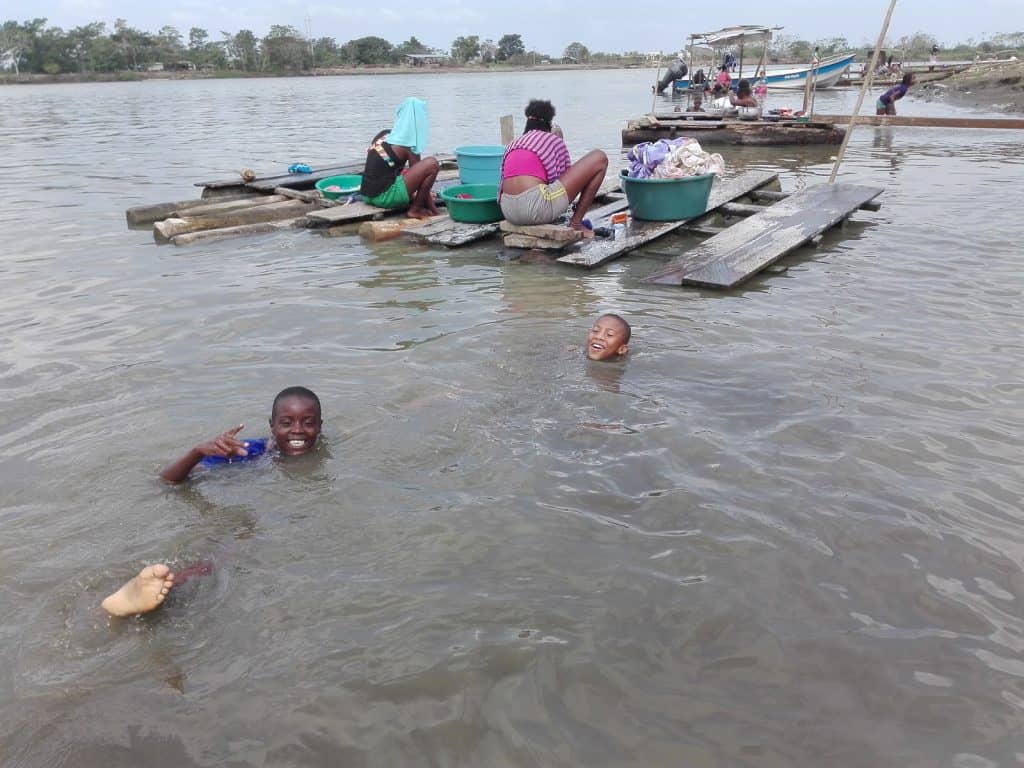
Every holiday that is so irrelevant to us, be it the feast day of a saint, or one of the many festivals of Riosucio or Colombia, everything is celebrated in full. According to the missionary, this helps them channel negative energy that they cannot otherwise process under the circumstances.
They know how to live in the moment. The past is painful, the future is uncertain, so they only remain ‘in the now’.
And this ‘now’ is really the only thing we have. What it is is past, and the future can bring anything. With each heartbeat, we are presented with another pulse of life, which we often hear, as we either grieve past events or worry about what lies ahead. This is one of the most important life lessons we’ve learned while sharing moments with the people in Riosucio.
